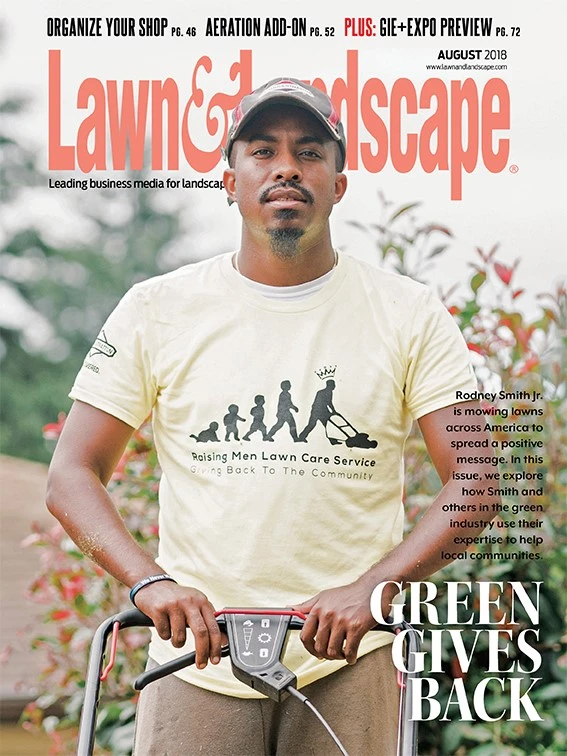
Seed prices can rise and fall, depending on production rates, so we spoke to some industry insiders to see how things are shaping up.
Lawn & Landscape: What are seed prices looking like this year compared to last?
Aaron Kuenzi, executive vice president, Mountain View Seeds: Other than poa trivialis, prices will remain at similar levels as they were in the spring. Compared to 12 months ago that means tall fescue is up about 10 percent, perennial ryegrass is down about 4 percent and Kentucky bluegrass and fine fescues are about the same.
Bo Lacy, production manager, Barenbrug USA: Annual ryegrass has no change, perennial ryegrass is down 1 cent, tall fescue is up .095 cents and bluegrass has no change.
Russ Hayworth, national business development, Pure Seed: Pricing on turf-type tall fescue is higher than last season as inventories are tight and demand remains constant. Perennial ryegrass pricing is stable compared to last season as we continue to work through last year’s production carryover.
Chris Claypool, Jacklin Seed by Simplot: Prices will be similar to last season, but could be higher on tall fescue and some bluegrasses.
L&L: What does the carryover stock look like right now?
AK: The industry has very limited tall fescue, fine fescues and Kentucky bluegrass carryover. There’s an adequate carryover of perennial ryegrass.
BL: Very little carryover for annual ryegrass and tall fescue, some carryover of bluegrass and 130 million pounds of perennial ryegrass.
RH: Kentucky bluegrass is in short supply due to poor harvest conditions and low yields from last year’s production. We are experiencing strong demand for Kentucky bluegrass as customers are realizing the versatility of improved varieties and an expanded growing area. Fine fescue markets remain strong and we are seeing a rise in their usage and applications when mixed with other species of cool season grass seed.
CC: Only perennial ryegrass has carryover. All other species were sold out or only poor quality remained.
L&L: What does production look like right now? Is there an abundance of any particular species?
AK: We are about two weeks from getting solid production numbers for this year’s crop but at the moment production looks pretty stable to slightly less than average due to our dry, warm May and June weather. However, acres of most species are similar if not higher than last year, so total production should be adequate.
BL: Production looks to be normal. There’s an abundance of perennial ryegrass.
RH: This year’s production is progressing nicely and slightly ahead of schedule. Initial reports indicate yields are coming in slightly below average for every species.
CC: The only surplus has been perennial ryegrass. But the costs have not declined, so prices should be similar to last season. Other grass species are in strong demand and prices are the same or slightly higher.
L&L: Do you predict a significant change in the future for any particular species?
Sponsored Content
Lawn and Landscape Marketing on a Budget
Digital marketing can feel overwhelming when you’re working with a limited budget. Websites, SEO, social media, and paid ads can quickly add up, but you don’t need to do everything to see results. By focusing on cost-effective strategies, you can still make a big impact without overspending.
AK: Not sure if we see any significant changes, but (we) do see trends that will continue. Tall fescue continues to grow in market share replacing perennial ryegrass and Kentucky bluegrass in the northern regions.
BL: Not at this time.
RH: Cool season grass seed species are being bred and developed to enhance traits related to drought, disease, salt and traffic tolerances. Those traits are all important in our efforts to provide a better footprint and lower the inputs on our environment.
CC: For higher quality bluegrass and tall fescue, the prices must increase. Fine fescues will struggle more in production. Bermuda seed production has more competition now too with other crops for water.
Get curated news on YOUR industry.
Enter your email to receive our newsletters.
Explore the August 2018 Issue
Check out more from this issue and find your next story to read.
Latest from Lawn & Landscape
- Ceramica acquires Fundraising Brick
- Senske Family of Companies acquires Huron Pest Control
- Sunseeker unveils new X7 Series Robotic Mowers
- Bobcat Company debuts MT120 mini track loader
- Senske Family of Companies opens new corporate office
- Autonomowus Lawn Company adds robotic mowers to Genan tire recycling plant
- Visterra Landscape Group acquires Cleveland-based H&M Landscaping
- SiteOne names Carrothers VP of agronomic business development










